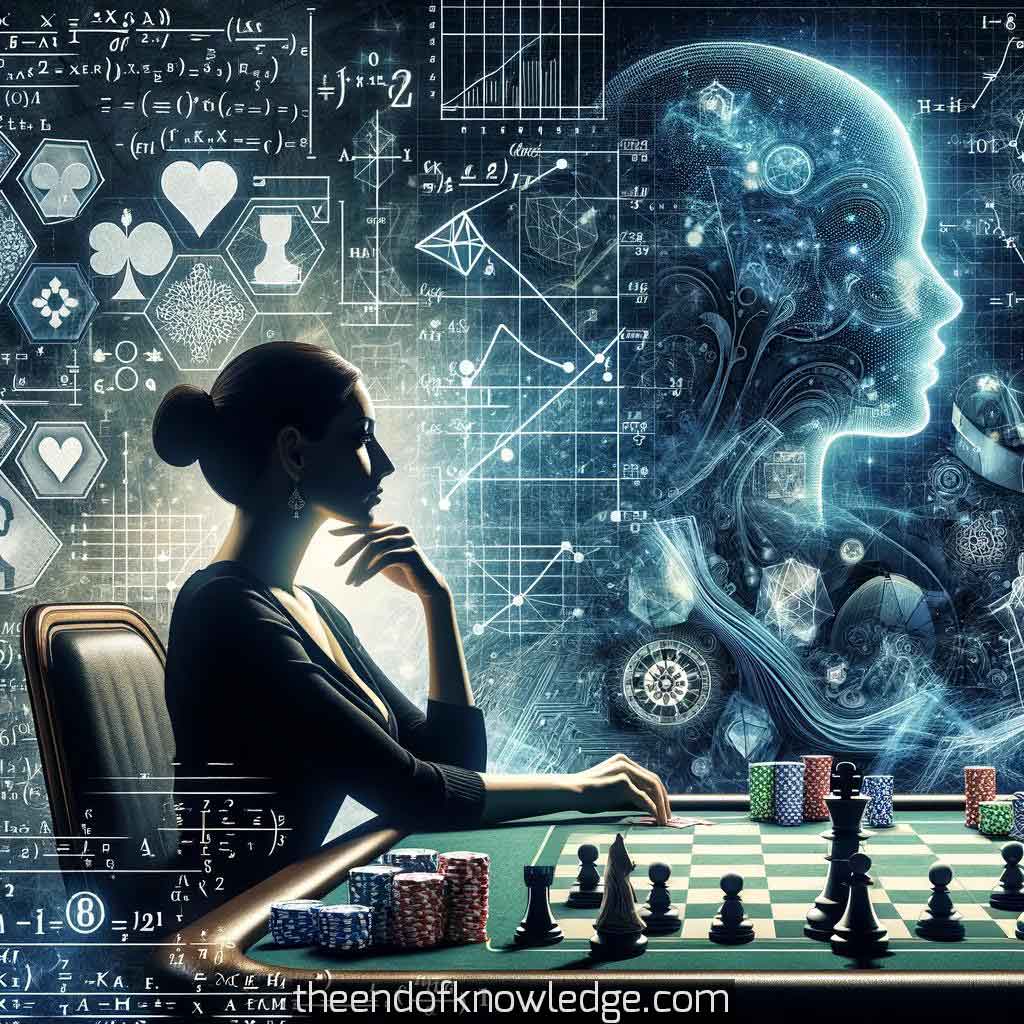 >
>
Concept Graph (using Gemini Ultra + Claude3):
Custom ChatGPT resume of the OpenAI Whisper transcription:
1.- Liv Boeree, a former top poker player, now focuses on philanthropy and education in game theory, physics, complexity, and life.
2.- Poker's role in Liv's life evolved from a professional pursuit to a vehicle for understanding decision-making and human behavior.
3.- Luck in poker diminishes with increased playtime, highlighting skill and strategy's importance over longer periods.
4.- Poker involves mathematical strategies, particularly game theory optimal (GTO) strategies, which aim to minimize losses and become less exploitable.
5.- Boeree emphasizes that adopting GTO strategies in poker is crucial, but understanding and adapting to opponents' strategies is equally important.
6.- Game theory, a branch of economics, is the study of decision-making in competitive situations, often represented through payoff matrices.
7.- Nash Equilibria in game theory represent situations where no player can benefit by changing their strategy unilaterally.
8.- In poker, players must adapt their strategies when opponents deviate from optimal play, utilizing both logic and intuition.
9.- Boeree discusses the evolving study methods of top poker players, including the use of Monte Carlo simulations for game analysis.
10.- Poker software assists players in understanding optimal strategies for various hand scenarios, incorporating betting strategies into game theory.
11.- The role of luck in poker is complex; while it allows less skilled players to win occasionally, it can also mislead players' perception of skill.
12.- Boeree compares bluffing in poker to high-stakes lying, requiring similar psychological strategies and stress management.
13.- The conversation explores the parallels between poker strategies and broader life decisions, emphasizing the applicability of game theory in various contexts.
14.- Boeree discusses her personal journey and challenges in professional poker, including the balance between competitive drive and personal satisfaction.
15.- The discussion touches on the psychological aspects of poker, including handling pressure, reading opponents, and managing emotions.
16.- Boeree reflects on the changing dynamics of poker, with an increased emphasis on analytical skills and less reliance on intuition compared to the past.
17.- The conversation delves into the concept of game theory optimal play, discussing its application in poker and other strategic games.
18.- Boeree highlights the importance of mental resilience in poker, requiring players to manage stress and maintain focus under pressure.
19.- The interview explores the ethical considerations in poker and game theory, examining the moral implications of strategic decision-making.
20.- Boeree discusses the role of artificial intelligence in poker, considering its impact on strategy development and the future of the game.
21.- The conversation examines the relationship between poker, probability, and decision-making, highlighting the skills transferable to other areas of life.
22.- Boeree reflects on her transition from professional poker to philanthropy and education, discussing the motivations and challenges of this shift.
23.- The discussion addresses the gender dynamics in poker, exploring Boeree's experiences as a female player in a predominantly male-dominated field.
24.- Boeree shares anecdotes from her poker career, illustrating the highs and lows of professional play and the lessons learned along the way.
25.- The conversation touches on the cultural and societal perceptions of poker, considering its reputation and the stereotypes associated with the game.
26.- Boeree and the host discuss the psychological tactics used in poker, such as bluffing, and their parallels in everyday life situations.
27.- The interview delves into the importance of adaptability in poker, emphasizing the need to adjust strategies based on opponents' actions.
28.- Boeree discusses the significance of discipline and self-control in poker, highlighting their critical role in long-term success.
29.- The conversation explores the concept of risk management in poker, examining how players assess and respond to different levels of risk.
30.- Boeree reflects on the life lessons she has learned through poker, including the value of strategic thinking, patience, and resilience.
Interview byLex Fridman| Custom GPT and Knowledge Vault built byDavid Vivancos 2024